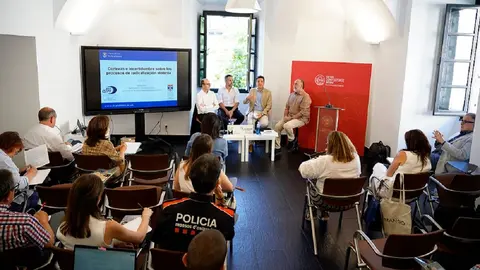We must not let our guard down in the face of jihadism
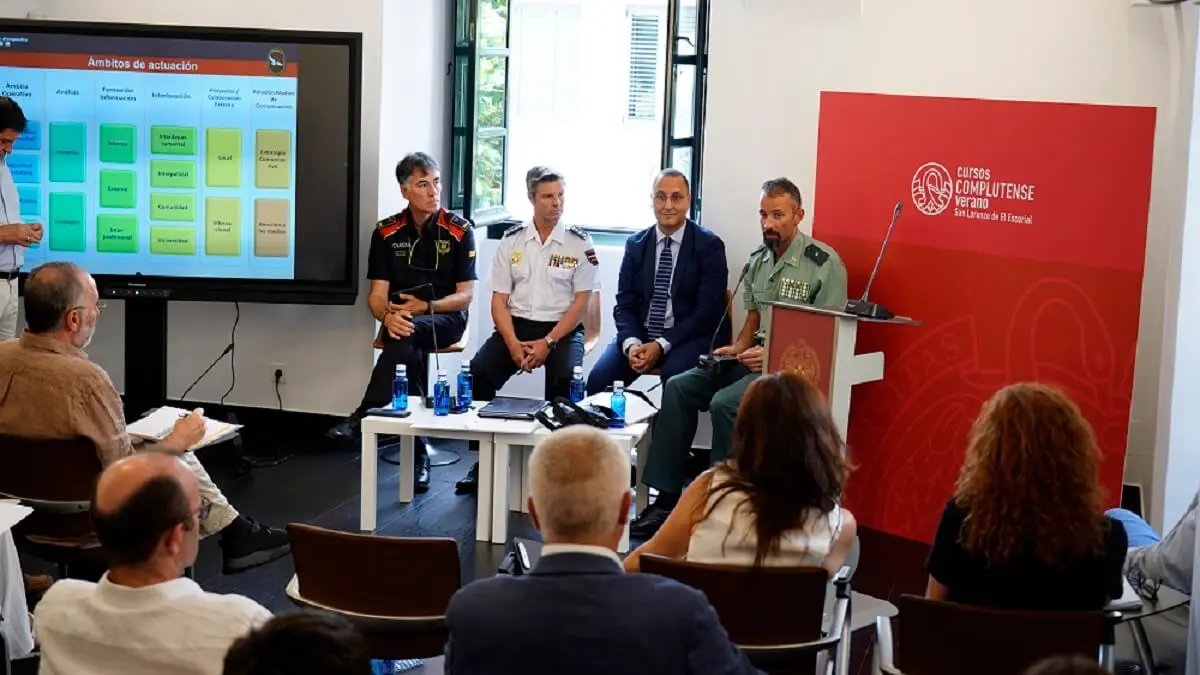
For the fourteenth year running, the Fundación Víctimas del Terrorismo and the Centro Memorial para las Víctimas del Terrorismo are organising a summer course in El Escorial.
This year the director is Manuel Torres Soriano, professor at the Pablo de Olavide University in Seville, and the title of the course is "Lessons learned in the fight against jihadist terrorism".
It was inaugurated by Isabel Goicoechea Aranguren, Undersecretary of the Ministry of the Interior, who pointed out that this course has become a tradition within the El Escorial courses and highlighted the knowledge acquired in the course to improve security policies, broaden knowledge on the past and present terrorist threat, always placing the victims at the centre of their reflection.
The first day of the course was attended by leading Spanish and foreign academics, together with representatives of the state security bodies and forces.
Manuel R. Torres Soriano, professor at the Pablo de Olavide University in Seville, director of the course, pointed out that, although Jihadist terrorism has lost visibility on the media agenda, the threat is still very much present. The professor warns of the danger of lowering one's guard and recalls that the lower incidence of jihadism in Europe is due to successes in the fight against terrorism. It is precisely these lessons learned that the course aims to reflect on, in order to continue to inform and support decision-making.
Fernando Reinares, Professor of Political Science at the Universidad Rey Juan Carlos and Distinguished Research Associate at the Real Instituto Elcano, considers that, when it comes to explaining Jihadist radicalisation, both in the academic world and in the general perception in the West, the importance of structural factors has been overestimated and that of personal factors underestimated. Thus, he exemplified the highly individualised nature of the radicalisation process by emphasising the trajectories marked by drug use and delinquency.
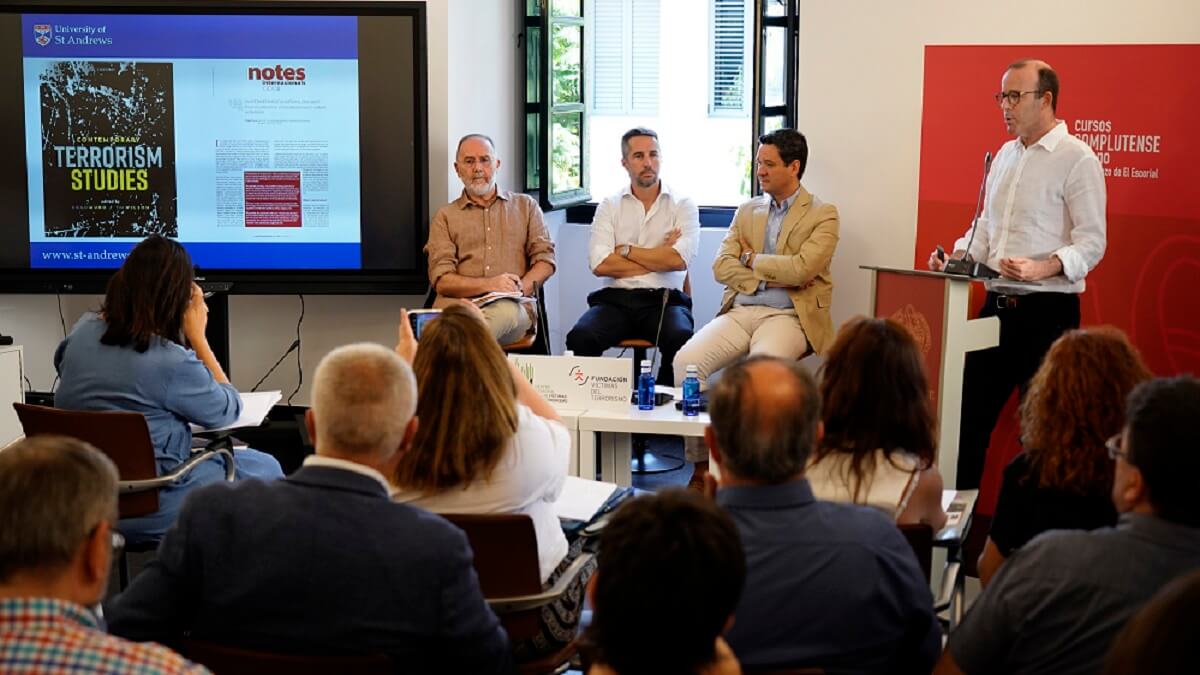
Meanwhile, Lorenzo Vidino, Director of the Programme on Extremism at George Washington University, pointed out that we have entered a phase of Jihadist ebb, with less mobilisation, although there are still favourable networks and environments. He stresses the importance of a phenomenon in full swing, designated by the Americans as "salad bar ideology", which takes the form of attacks motivated by a mixture of motivations that can even be contradictory.
On the other hand, Diego Muro, Senior Lecturer in International Relations at the Handa Centre for the Study of Terrorism and Political Violence (CSTPV) at the University of St Andrews (UK), underlined the difficulty of moving from theory to practice, especially with regard to the design of reliable indicators of radicalisation.
Meanwhile, Said Dris, head of section of the Counterterrorism and Threat Assessment Area of the Centre for Intelligence against Terrorism and Organised Crime (CITCO), commented on the improvement of counterterrorism tools, referring to the National Counterterrorism Coordination Centre, which allows the main counterterrorism bodies to have a single, integrated and updated vision of threat assessment. He also mentioned more effective tracking of individuals who have served sentences for terrorist offences, as well as greater fluidity in international cooperation, pointing to the progress represented by the PNR, as well as the success of several joint operations with Morocco. However, he recalled that jihadist groups continue to gain a foothold in the Sahel, without any short-term measures being outlined to counter this threat.
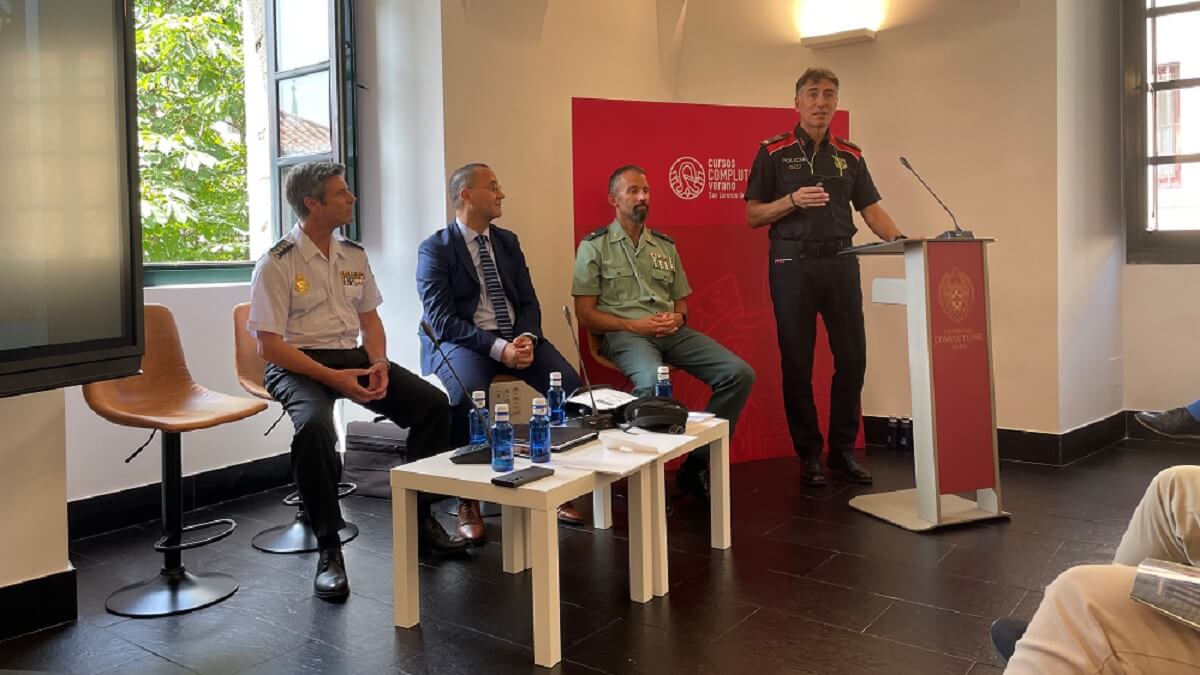
Along these lines, Manuel Rodríguez García Risco, head of Counterterrorism Investigations at the National Police Force's General Information Office, reported that some regulatory changes hinder the fight against terrorism, making it difficult, for example, to obtain an extension of detention or the possibility of holding a suspect incommunicado, crucial aspects of the investigation given the time needed to download, analyse and translate the materials seized.
For his part, Óliver Pérez López, commander of the Guardia Civil's Information Service, highlighted the adaptability of jihadist groups, a characteristic that makes police action difficult. Faced with the constant transformation of the phenomenon, prevention and the collaboration of citizens and social workers are key.
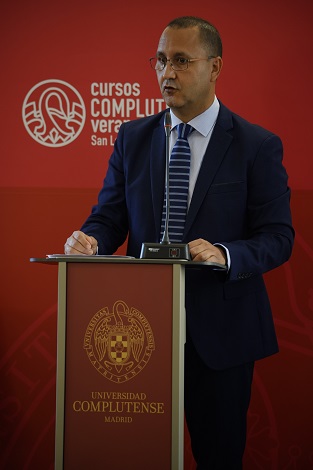
In addition. Lluis Paradell i Fernández, an inspector with the Mossos d'Esquadra's General Intelligence Office, insisted on the same point. He considers it fundamental to increase the trust of these actors towards the security forces and corps to allow for more systematic cooperation. He also calls for a decisive investment in prevention with a long-term vision that does not focus on a single type of extremism.
Ignacio Fuente-Cobo, an artillery colonel and senior analyst at the Spanish Institute for Strategic Studies, also drew attention to counterproductive practices that could turn local populations against each other and encourage their radicalisation, both in terms of the duration of external operations and the practices themselves.
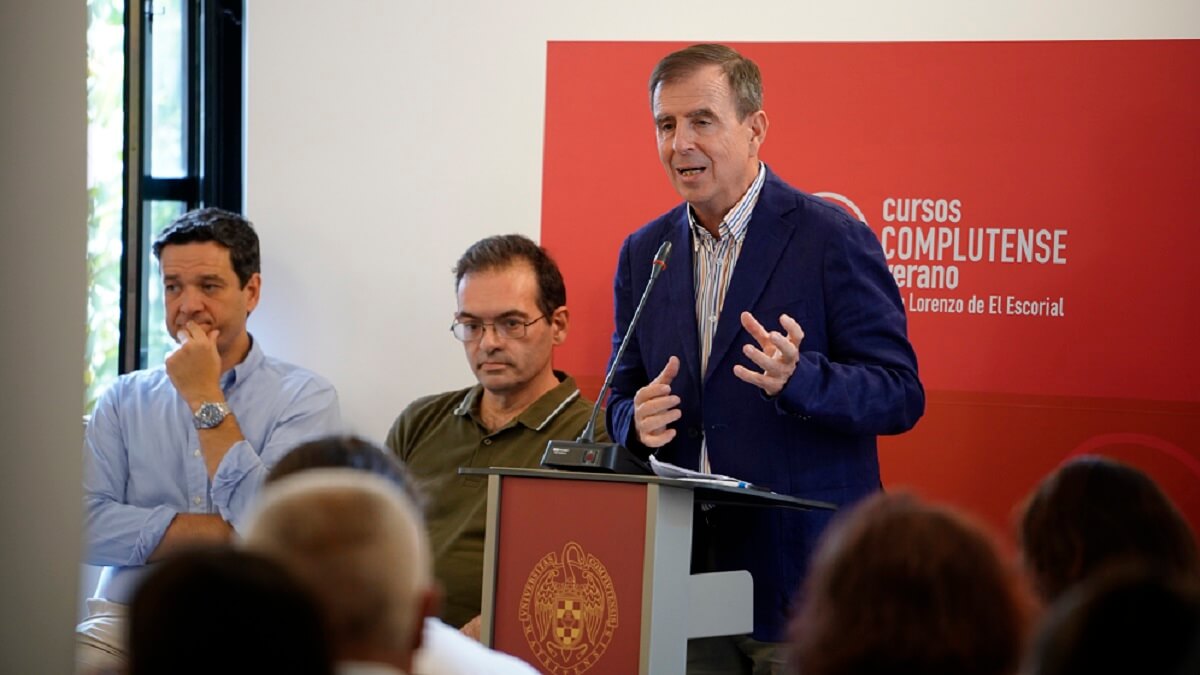
On the other hand, Javier Jordán Enamorado, Professor of Political Science at the University of Granada, gave an assessment of the campaigns to eliminate terrorist leaders through drone attacks, a method that has become institutionalised in US counter-terrorism policy. It is true that such operations have posed documented problems for al-Qaeda in replacing competent cadres and have forced it to limit its contacts inside and outside the organisation in order to limit potential security breaches in terms of locating members. However, the use of drones is criticised for the lack of transparency in the targeting process, the questioning of the legitimacy of acting in scenarios that are not war zones, and the risk of civilian casualties.
Finally, Josep Baques Quesada, Professor of Political Science at the University of Barcelona, commented that the most effective way to put an end to terrorism is to extinguish its sources of financing (he particularly stressed the link between terrorist groups and drug trafficking) and to deprive them of sanctuary states, generally failed states where terrorist organisations thrive. In this respect, he points out that it is more realistic to try to build a viable state than a democracy, and therefore calls for abandoning an idealism that "is leading us to ruin".

